MasterClass for Writing - Should You Try it? [Courses and Reviews]Are you hoping to write a hit book or screenplay? The writing courses on MasterClass can help. Learn writing techniques online, with self-paced video lessons from famous authors and screenwriters. In this article, I provide reviews of recommended MasterClass courses on book and screenplay writing from various instructors. What is MasterClass?MasterClass is an online-education platform that features video courses taught by accomplished people in various fields. Subscribers to MasterClass gain access to all courses on the platform. One of the areas MasterClass covers is writing. Since I'm a fiction writer, in this article, I focus on classes pertaining to books and scripts, however, MasterClass provides narrative writing courses in poetry and journalism too. You can view all of the MasterClass writing courses on its website: Who are MasterClass writing courses for?MasterClass courses were designed with new writers in mind. You should be able to understand the material even if you haven't tried writing a book or screenplay yet. Experienced authors or screenwriters may already be familiar with various topics covered, however, can surely pick up new tips. Certain classes revolve around book writing and others screenwriting. However, most of the underlying concepts the instructors speak about apply to both formats. Some courses go into detail on specific genres - ex, thrillers - however, most of the underlying concepts apply to various genres across narrative writing. If you are an author or screenwriter in any genre - or would like to be someday - all of the classes listed in this article should benefit you in some way. Here's a look at the major topics the courses cover... MasterClass writing topicsMany lessons are aimed at helping writers create an outline for their story. Example topics: Lessons also cover the writing stage after an outline is completed and a writer has moved on to creating scenes. Example topics: Finally, various lessons go over elements of a writing career that aren't directly related to what's written on a page. Example topics:
How much does MasterClass cost?A MasterClass Individual membership costs $10/month, billed annually. Subscribers receive instant access to all courses on the platform, which they can view on one device (ie, computer, tablet, phone, or TV). For $15/month, billed annually, you can access all course content on two devices, known as the Duo membership. The Family membership - which costs $20/month billed annually - lets you access content on six devices. All three plans have a 30-day guarantee. If you aren't certain the platform is a fit for you, I encourage you to sign up and try it. If you'd rather not remain a member, you can easily cancel your subscription for a full refund. MasterClass writing courses and reviewsBelow are overviews and links to MasterClass writing courses I recommend. I looked into classes in areas related to what I write. I am sure many other classes on MasterClass are helpful too. Just because a class isn't on this list, does not mean you should skip it. Possibly you write in an area much different than me (ex, children's books) and other classes may be of interest to you. Once you subscribe to MasterClass, I suggest you browse all the writing classes and take as many as possible with material relevant to you. My list of recommended classes, with reviews... James Patterson MasterClass reviewJames Patterson is the bestselling novelist of thriller series such as Alex Cross and Women's Murder Club. His MasterClass features 22 video lessons, covering topics like:
I recommend this class to anyone interested in writing fast-paced fiction, particularly in the mystery and thriller genres. Though James Patterson is an author, the class would also be helpful for screenwriters. To take the James Patterson MasterClass, just register on the website and you can start immediately: David Baldacci MasterClass reviewDavid Baldacci is the bestselling author of various thriller series. In his MasterClass, you can take 18 video lessons on topics like:
I recommend this class to anyone interested in writing page-turning fiction, especially in the mystery and thriller genres. Though David Baldacci is a novelist, the lessons would apply to screenwriters too. To take the David Baldacci MasterClass, just sign up on the website and you can begin immediately: Malcolm Gladwell MasterClass reviewMalcolm Gladwell is the bestselling author of non-fiction books such as The Tipping Point and Blink. Since Malcolm Gladwell writes in a narrative style, I've included his course on this list, even though his books aren't fiction. He teaches 24 video lessons, on topics like:
I recommend this course to anyone interested in writing narrative non-fiction, or fiction, whether articles, short stories, or books. Screenwriters and documentary filmmakers could benefit from these lessons too. To take the Malcolm Gladwell MasterClass, just register on the website and you can start right away: Aaron Sorkin MasterClass reviewAaron Sorkin is the acclaimed writer of The Social Network, The West Wing, and other films and television shows. His class offers 35 video lessons, on topics such as:
I recommend this course to anyone interested in writing screenplays, teleplays, plays, or novels. To take the Aaron Sorkin MasterClass, just sign up on the MasterClass website and you can start instantly: Neil Gaiman MasterClass reviewNeil Gaiman is a popular writer of short stories, novels, graphic novels, and more. His MasterClass features 19 video lessons, on topics like:
I recommend this course to anyone interested in writing novels, short stories, screenplays, graphic novels, or comic books. Though the class may be particularly helpful to fantasy writers, any fiction writer could benefit from it. To take the Neil Gaiman MasterClass, just sign up on the website and you can begin immediately: Dan Brown MasterClass reviewDan Brown is the bestselling author of The Da Vinci Code and other thriller novels. His course offers 19 video lessons, on topics such as:
I recommend this class to anyone interested in writing mysteries and thrillers, whether in novel or screenplay form. The class could also be helpful to writers in other genres who are hoping to incorporate suspense into their stories. To take the Dan Brown MasterClass, just register on the website and you can start instantly: David Mamet MasterClass reviewDavid Mamet is the acclaimed writer of plays, such as Glengarry Glen Ross and American Buffalo, screenplays, and more. His class features 26 video lessons, on topics like:
I recommend this class to anyone interested in writing screenplays, plays, or novels. To take the David Mamet MasterClass, just sign up on the MasterClass website and you can begin immediately: More recommended MasterClass courses for writersThe MasterClass courses listed above are designed for writers. Some other courses are designed for directors, however, address storytelling concepts a writer could find helpful. Below, I've provided a brief bio of these instructors and links to learn more about their classes: David Lynch is the acclaimed screenwriter and director of the films Mulholland Drive, Blue Velvet, and more. To learn more about the David Lynch MasterClass, visit the course page. Martin Scorsese is the Oscar-winning director of Goodfellas, The Wolf of Wall Street, and other films. To learn more about the Martin Scorsese MasterClass, visit the course page. Judd Apatow is the popular screenwriter and director of the films Knocked Up, The 40-Year-Old Virgin, and more. To learn more about the Judd Apatow MasterClass, visit the course page. Ron Howard is the Oscar-winning director of A Beautiful Mind, Backdraft, and other movies. To learn more about the Ron Howard MasterClass, visit the course page. James Cameron is the Oscar-winning screenwriter and director of The Terminator, Aliens, and other films. To learn more about the James Cameron MasterClass, visit the course page. Try MasterClass freeDo any of the MasterClass courses mentioned in this article seem like they could help you? If so, I suggest you sign up for MasterClass and start watching the lessons. You have a 30-day money-back guarantee. If the platform isn't right for you, easily cancel without losing a dime. To begin your MasterClass free trial, just visit the website and select "Sign Up": To learn more about MasterClass, check out my post on how it compares to Skillshare. This post contains affiliate links.
0 Comments
Use These 10 Literary Devices to Tell an Awesome StoryIf you're writing a book, screenplay, or short story, you want to captivate your audience with your characters and settings, build suspense, and deliver strong emotional payoffs. Literary devices are tools that can help. Though plenty of literary devices exist, these 10 are particularly useful in fiction and narrative non-fiction. Check out these examples and tips for using them to tell an awesome story. Want to write an awesome story? Download my FREE outlining guide. What is a literary device?A literary device is a technique writers can use to make stories more engaging. These tactics can create suspense, evoke emotion, set up a plot twist, and more. Alliteration, symbolism, and foreshadowing are examples of literary devices. 10 literary devices for your storyBelow are definitions of 10 powerful literary devices for your book, screenplay, or short story. Click the "Learn More" links to see examples of each literary device and tips for applying it to your story. #1 - SymbolismSymbolism is when an element of your story - like a character, setting, or object - represents an idea. The represented idea tends to play a significant role in the story's character development, plot, or theme. For instance, in a prison story, grass might be a symbol for freedom. Learn More #2 - ToneTone is the attitude a writer takes toward the events in a story. Though characters may have distinct attitudes, the literary device tone just refers to the attitude of the writer. Some examples of tone are optimistic, comedic, and regretful. Learn More #3 - MoodMood is the overall feeling of a scene. Chaotic, warm, and sad are examples of moods. One story can have many moods, since different scenes can create different emotional responses from an audience. Learn More #4 - ImageryImagery is a literary device writers use to connect with any of the audience's five senses: sight, sound, smell, touch, and taste. Imagery is often used in the descriptions of characters, settings, and plot events. Learn More #5 - MetaphorA metaphor falsely asserts that one thing is another while creating a true, symbolic comparison. "The office is an igloo" is an example of a metaphor. Learn More #6 - PersonificationPersonification is the granting of human qualities to non-human elements in a story, like vehicles, houses, and even concepts, such as hope or doubt. Learn More #7 - ForeshadowingForeshadowing is a literary device writers use to allude to future events in a story. Two kinds exist: (1) Direct foreshadowing states a story event is to come (2) Indirect foreshadowing gives evidence of an event the audience does not anticipate. Learn More #8 - Dramatic ironyDramatic irony is a literary device in which a writer gives information to the audience that a character, or multiple characters, is unaware of. The tactic can build suspense. Learn More #9 - MotifA motif is a repeating element in a story that plays a strong role in the story's theme. Motifs can be abstract ideas, like triumph or deceit. They can also be parts of your story's physical world, such as buildings, objects, colors, and noises. Learn More #10 - AlliterationAlliteration is the repetition of a consonant sound at the start of two or more close-together words, as in "warm weather," with "w" the repeating sound. Learn More Why use literary devices?Here are just some storytelling components literary devices can help you with:
What genres use literary devices?Literary devices are used across fiction and narrative non-fiction. Some examples of genres that use literary devices:
How to use literary devicesLiterary devices should serve the story you're telling. Once you have an idea of your characters and your plot, and you begin writing your first draft, you'll need to accomplish various tasks to make any scene work. For instance, let's say your main character in a thriller is running from three gunmen in a scene. For this scene to work, a task of yours could be making the audience fear for your protagonist's life. A combination of literary devices can be applied to accomplish that task. You can use dramatic irony to make your protagonist unaware of the danger lurking around the corner. Once the protagonist sees the gunmen, you can leverage mood to create a feeling of desperation. You can also apply imagery to show the physical effects of panic, like sweat and an accelerating heartbeat. Think of literary devices like specialized tools. Let your story tasks dictate when and how you apply these tools. What to avoid when using literary devicesAs stated, the writing tasks you need to accomplish to make a scene work should determine what literary devices you use - avoid the opposite approach, ie, deciding you want to use a certain literary device and then bending the purpose of a scene just so the device can fit. You also want to avoid literary devices drawing attention to themselves. They should help your scenes flow, not cause the audience to focus on the device. Certain devices, like alliteration, can draw attention to themselves if used too often. Other devices, like tone, can draw attention to themselves if shifted through a story. Once you gain a deeper understanding of the 10 literary devices outlined above (with the "Learn More" links), you should have a good idea of how to apply them to your story in a natural way. Captivate Your Readers With Imagery: Definition, Examples, and TipsIf you're writing a book, screenplay, or short story, you want to draw your readers deep into the world of your story. Imagery is a powerful literary device you can use to give your readers a vivid experience of your scenes. In this article, I provide the definition of imagery, examples, and tips for applying it in your story. Want to write an awesome story? Download my FREE outlining guide. What is imagery in writing?Imagery is a literary device in which writers engage readers via language that evokes any of the five senses: sight, sound, smell, touch, and taste. Imagery is often applied to the descriptions of characters, settings, and plot events. Why is imagery important?Imagery is a literary device that creates a sensory connection between the reader and the physical world of the story. Scenes become more immersive because of this connection. After a reader finishes a scene, an effective use of imagery can make him say, "I felt like I was there." The writing technique can also build empathy with characters, a key part of storytelling. If a reader is able to sense what a character is experiencing, the reader can better empathize with that character. Below are two examples of a plot event, the first described without an emphasis on imagery, and the second with an emphasis on it. Which do you feel is stronger? Example A Becca walks through the woods to meet her friends at the campsite. She believes a killer is following her, so she takes off running. She runs for about a mile, reaches a street in a small town, and hides out in a diner. Example B Becca walks through a dark forest toward the campsite. Footsteps thud behind her. She looks over her shoulder, but sees nothing but the gnarled barks of trees. She heard a rumor about some weirdo who lives out here, but figured it was just an urban legend. She keeps walking, the November air cold on her neck. The footsteps behind her return. She takes off running through the close-together trees. Her heart pounds. The branch of a pine tree hits her in the face. She spits a few pine needles out of her mouth. Up ahead, the lights of a small town glisten beyond the evergreens. She dashes onto the street and rushes into the first building she sees, a diner. The place smells like apple pie. However, Becca is too nervous to eat. Shaking and huffing, she sinks onto a stool at the counter. The 5 types of imagery in writingThough the word imagery relates to sight, as a writing technique, imagery does not just apply to the visual - it relates to all five senses. Below are examples of the five types of imagery in writing: Visual imageryWith visual imagery, a writer uses language that lets readers imagine specific images. For example: Over the silhouette of the mountaintops, a bolt of lightning rips through the sky. The rain, coming down at a sideways angle, smashes the body of Bill's car. Sound imageryWith sound imagery, a writer uses language that lets readers imagine specific sounds. For example: Nick swings the crowbar into the department store's window. The glass shatters. Shards shower down on the pavement at his feet. He runs inside while the alarm wails. Scent imageryWith scent imagery, a writer uses language that lets readers imagine specific scents. For example: Kayla looks away from the TV. She sniffs the air. It smells like burnt wood. She swings open her bedroom door. The scent grows stronger. She notices smoke. Taste imageryWith taste imagery, a writer uses language that lets readers imagine specific tastes. For example: Gary watches the waiter carry over the entrees at his favorite restaurant, Forge Steakhouse. He grabs his fork and knife and looks down at the twenty-four-ounce porterhouse set in front of him. He slices off a piece. It warms his entire mouth. He bites into it, the juice seeping out. Tactile imageryWith tactile imagery, a writer uses language that lets readers imagine specific sensations of touch. For example: The bullet tears through Scott's thigh. The hot metal shreds his muscle. His entire leg flames with pain. Tips for applying imagery in your writingImagery can enhance almost any scene. However, you need to be careful about when and how to apply it. Here are some tips to follow: #1 Avoid excessive adjective useImagery is a type of descriptive writing. When trying to be descriptive, some writers make the mistake of loading their sentences with adjectives. Feel free to use adjectives in your imagery, but don't overdo it. A combination of vivid nouns and verbs can often make a point stronger, and in fewer words, than a series of adjectives. #2 Use more imagery for more important story elementsImportant characters, settings, and plot events warrant more detailed descriptions - and thus, more imagery. When you describe a setting that will go on to play a major role in your story, feel free to go into detail about it. For instance, let's say you're telling a crime story and the villain and his crew often hang out at his auto body. The place will later serve as the setting for the climactic shootout. You should go into specifics about things like the sounds of the mechanics' machines, the splotches of grease on the floor, the taste of the candy in the vending machine out in the hallway. In the same story, your protagonist happens to stop at a coffee shop. The shop is only in one scene, just briefly. Spending five paragraphs describing the coffee shop wouldn't be warranted - the setting isn't important enough to the overall story. #3 Vary the types of imageryGiving the reader a visual sense of a scene is critical. Thus, you'll likely find yourself using visual imagery more than the other kinds. That's okay. However, be sure to work in the four other types. That being said, you never want imagery to feel forced. Let's say you've used all the types of imagery in a certain scene except taste. If the scene doesn't call for a character to be tasting something, don't worry about getting in taste imagery. You should never create additional imagery at the risk of your story events feeling unnatural. What genres use imagery?Imagery is used across fiction and narrative non-fiction. Some examples of genres that use imagery:
Want more writing advice?The Key to Descriptive Writing - Words and MoreYes, word choice is important in descriptive writing. However, simply inserting a bunch of adjectives into your sentences won't cut it. Check out these 5 tips expert writers use to create vivid descriptions in books, short stories, screenplays, and articles. Want to write an awesome story? Download my FREE outlining guide. What is descriptive writing?Descriptive writing is a storytelling technique that vividly conveys the setting and character behavior within a scene. It is found in fiction and narrative non-fiction. It often relies on visual imagery to capture a scene, however, evokes the four non-sight senses as well. A common descriptive writing mistakeNewer writers often make the mistake of loading adjectives into their sentences, thinking it'll make their writing more descriptive. Though adjectives do describe, alone, they don't pull your reader into your scene. You want your audience to be immersed in the world of your story, to the point where they shut the real world out while reading. A tactic for accomplishing this is the "show don't tell" method. Essentially, instead of "telling" your reader something in your story has a certain characteristic, "show" that characteristic in action and allow the reader to come to the conclusion it exists. Excessive adjective use is associated with telling. Showing, on the other hand, draws your reader in the story world because it activates the part of the mind that makes observations. Your reader will begin to feel like an active participant in your story, not someone hearing about it from a distance. Let's look at two examples and see which you think is better... Examples of descriptive writing - show vs. tellLet's assume I want to convey to a reader that a big bowl of soup is hot. Here are two ways I can do that: Example A Kelly left a big, hot bowl of soup on the kitchen counter. Example B James walks into the kitchen. A bowl of soup takes up a chunk of the counter. Kelly must've forgotten to clean up after she ate. James grabs it, then yanks his hand away. The tips of his fingers burn. I feel example B is more descriptive. Notice how the adjectives "big" and "hot" aren't even used? Notice how no adjectives are used at all? Instead, the reader is pulled into the scene and uncovers the intended characteristics through sensory observation. Check out 5 tips below for leading your reader into the world of your story. For even more advice on creating immersive scenes, check out my online scene writing course. #1 - Leverage nouns and verbs in descriptive writingNouns and verbs are the main ingredients in the "show" method of storytelling. Because they capture physical entities and movement, they lend themselves to visualizations. Examples: The pitcher hurls the baseball. The criminal shatters the window. The hail whacks the pavement. Opt for words that create specific, concrete images in readers' minds. For instance, John travels down the street isn't as strong as John sprints down the street. Nouns and verbs can also appeal to the non-sight senses: smell, sound, taste, and touch. For instance, The music booms in her ears or The bullet rips through his flesh. #2 - Use character reactions in descriptive writingCharacter reactions add a human element to your scenes, which helps deepen the connection between a reader and your story. Let's say I want to get across the idea that a cliff is steep. I can show the reaction of a character observing the steepness to associate it with a feeling - in this case, fear. This human feeling provides depth to the physical description of the cliff. For instance: Fred inches his head over the cliff for a peek down. If he fell, sudden death. His heart pounding, he takes a step back. #3 - Use dialogue in descriptive writingLike character reactions, dialogue features humans. Because of this, it can express feeling, which pumps life into your story. Do you want to get across the point a character is funny? Don't tell your audience. Show the character saying something funny. Do you want to convey that a necklace in your story is beautiful? Don't tell your audience. Show a pair of characters discussing the lengths they'd go to just to wear it for a night. #4 - Avoid adverbs in descriptive writingThough you should try to phrase descriptive sentences with nouns and verbs, an occasional adjective is okay. For instance, if a car being red plays a role in the plot of your story, feel free to state that the car is red, versus trying to come up with some roundabout way of expressing the color without its name. Adverbs, on the other hand, should be eliminated from your sentences in the vast majority of cases. Adverbs tend to be extra words that don't add meaning to your writing. You should be able to cut almost all of them without losing the point you're trying to make. Below, I've made some descriptive points, with an adverb version to the left and a non-adverb version to the right. The non-adverb variations use fewer words, which helps keep your writing lean, while retaining the meaning of the point. Plus, they're more vivid.
#5 - Avoid data dumps in descriptive writingA data dump occurs when a writer piles a bunch of information about a topic onto the reader at once. These can slow your story, cause the reader to get bored, and pull them out of the world you've created. Even if you follow the tips above and your descriptive writing is quality, you should avoid going into too much depth on a topic at once. For example, let's say your main character is from a big city and she just arrives in a small rural town that will serve as the setting for the rest of the story. You will of course want to capture the essence of this small town. However, you should avoid telling your reader everything about it the moment it's introduced. Instead, release descriptive details about parts of the town as your characters experience them. As an alternative to informing your audience about the diner, the mill, and the motel in a data dump, describe the diner the first time your main character goes for breakfast. And don't inform your reader about the mill or the motel until they're featured in their own scenes later on. The same logic holds within a specific scene. Don't offer the reader everything about the diner the moment your character arrives. Have the audience experience the details as your character does. You can describe the old sign out front. Then the scent of the lobby. Then the quirky personality of the waitress. Then the taste of the food. Then the mysterious man in the corner who seems to be spying. Want more writing advice?You might also like my post on writing voice.
|
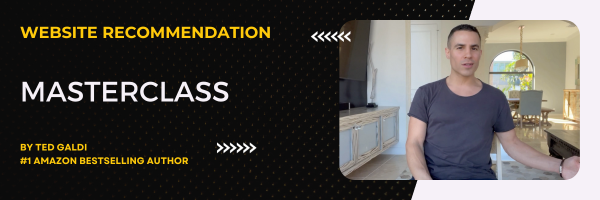
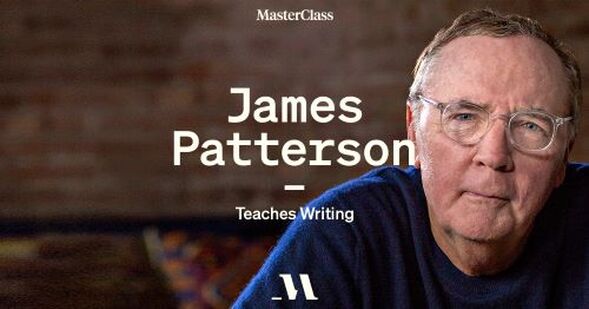
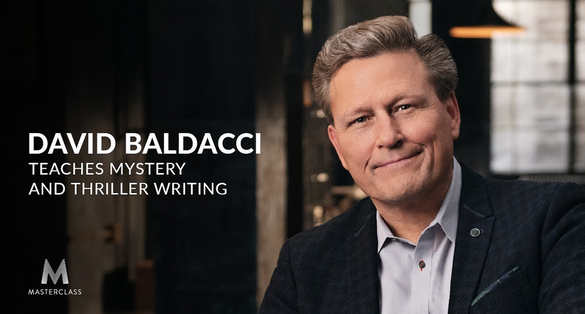
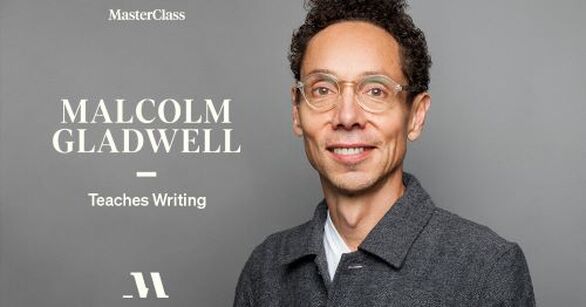
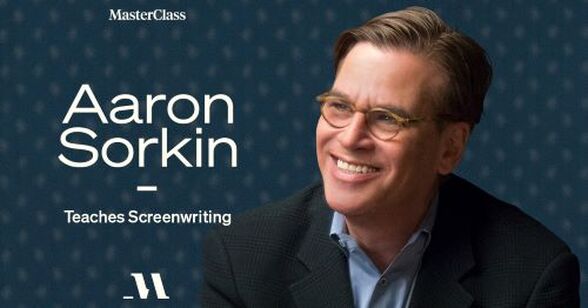
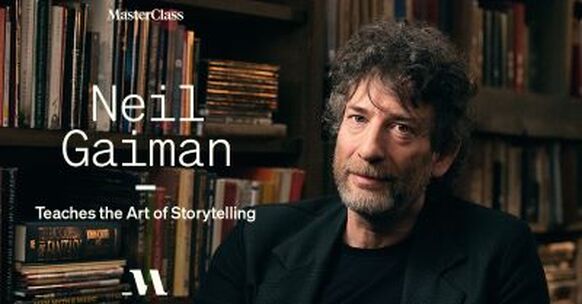
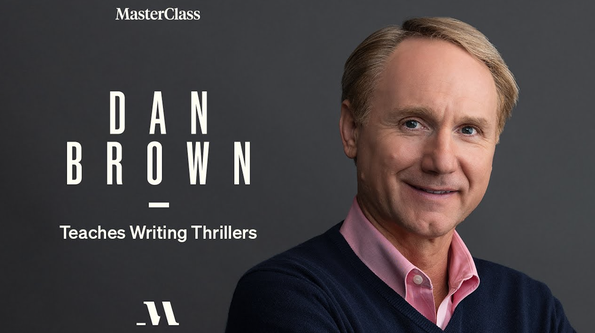
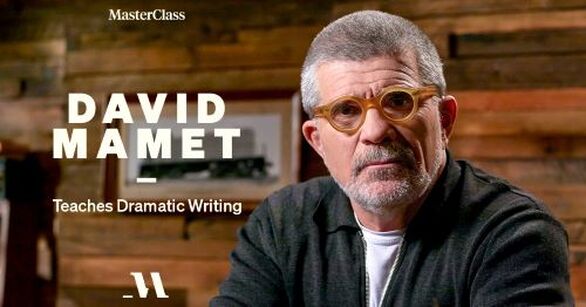
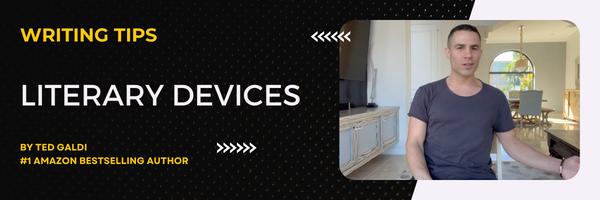
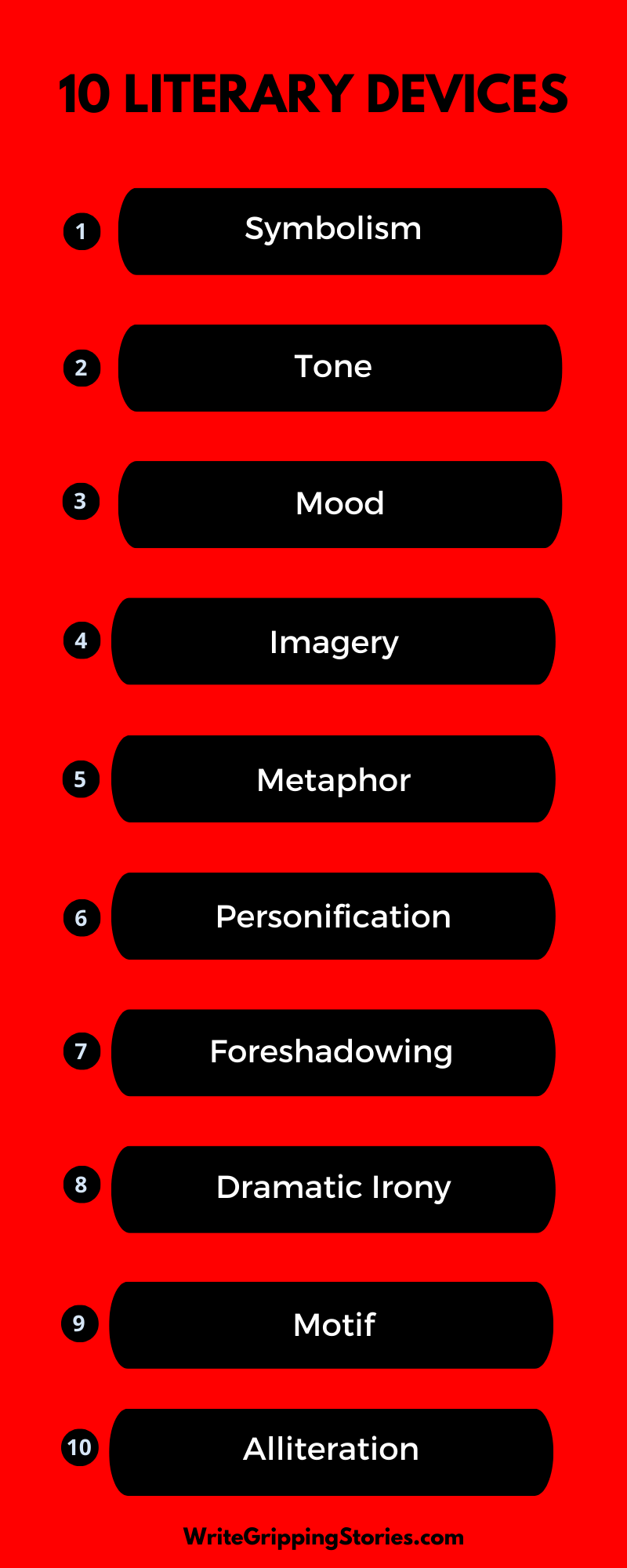
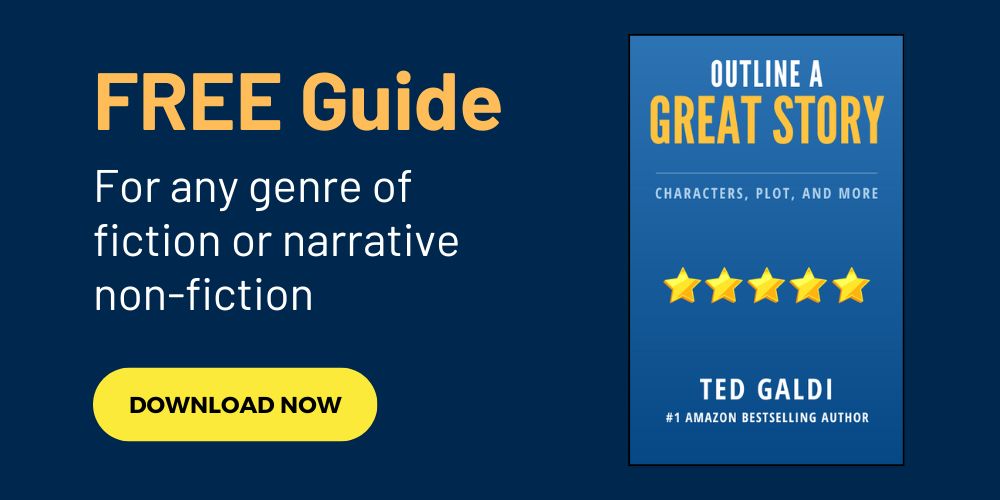
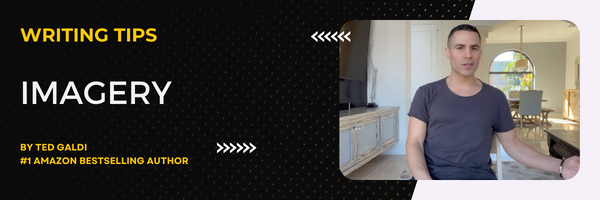
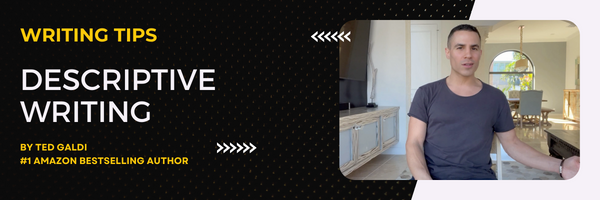
 RSS Feed
RSS Feed